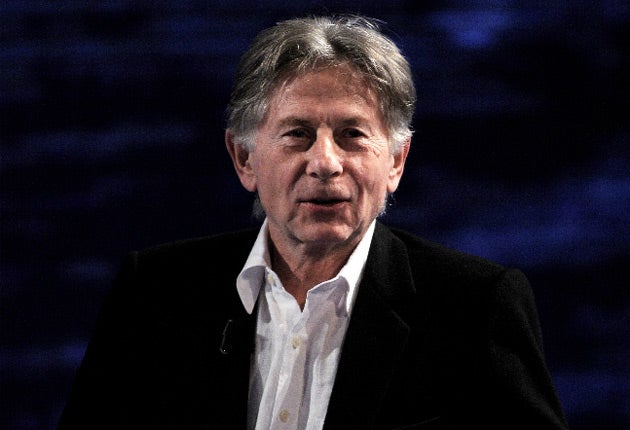Switzerland frees film director Roman Polanski

Switzerland said today it would not send Roman Polanski back to the United States to face sentencing for unlawful sex with a 13-year-old girl in 1977, freeing the Oscar-winning director from 10 months arrest.
Swiss Justice Minister Eveline Widmer-Schlumpf said she had decided against extradition because of potential technical faults in the U.S. request and also because Polanski had for years come to Switzerland in good faith.
"He is a free man since 1130 today," she told a news conference in Switzerland's capital Berne. "He can go to France or to Poland, anywhere where he will not be arrested."
Polanski, 76, who won a best director Oscar for his portrait of life in the Warsaw Jewish ghetto of World War Two in "The Pianist", was arrested on Sept. 26 upon arrival in Zurich to receive a lifetime achievement award at a film festival.
He had been under house arrest since December 2009 at his mountain chalet in the chic ski town of Gstaad on a 4.5 million Swiss franc ($4.26 million) bail, his movements constrained by an electronic foot bracelet.
"The electronic surveillance has now been switched off," Widmer-Schlumpf said.
It was unclear whether Polanski was still in Gstaad.
A person who identified herself as his assistant told Reuters over the chalet's intercom that Polanski had left Gstaad. She declined to give further details.
Polanski's arrest had prompted an outcry in the global film industry and in political circles in France, where he has been a long-time resident, with directors from Woody Allen to Martin Scorsese and Jean-Luc Godard expressing support for the Polish-French artist.
The arrest had also led to speculation, denied by the Swiss government, that the move could have been linked to a U.S.-Swiss 2009 row over a tax evasion probe against Swiss bank giant UBS.
Widmer-Schlumpf said Washington could appeal the decision internationally but she did not expect that to happen.
"This is not about qualifying a crime. That is not our duty. This is not about deciding on guilt or innocence," she said.
Polanski's release follows months of uncertainty over whether he would have to return to the United States to face sentencing.
The Swiss decision not to extradite Polanski had been all but certain after he suffered some setbacks in U.S. courts.
"It's an enormous satisfaction and a great relief after the pain suffered by Roman Polanski and his family," said Polanski's lawyer Herve Temime.
The director's release immediately drew scores of supportive comments from a French artists and high-ranking politicians.
"I am delighted with the decision," French Foreign Affairs Minister Bernard Kouchner said. "The great Franco-Polish director will from now on be able to rejoin his friends and family and work fully on his artistic projects."
"Switzerland has found the path to reason...What a beautiful lesson in democracy," said Bernard Henri-Levy, philosopher and a close friend, who led calls for Polanski's freedom.
Polanski's U.S. agent and the U.S. Justice Department in Washington declined to comment.
Polanski pleaded guilty to having sex with the girl after a binge of champagne and drugs but fled the United States on the eve of his 1978 sentencing because he believed a judge might overrule his plea and put him in jail for 50 years.
Polanski has lived in Europe ever since, facing the prospect of arrest the moment he set foot back on U.S. soil while continuing his film career outside Hollywood.
Born to Polish-Jewish parents in 1933, his life was marked by a narrow escape from the Krakow ghetto and by the murder of his pregnant wife, actress Sharon Tate, by followers of cult leader Charles Manson in 1969.
Polanski is also known for classics such as "Chinatown", which earned 11 Oscar nominations, and "Rosemary's Baby".
He completed his latest film "The Ghost", based on a Robert Harris's best-seller, while under arrest in Switzerland.
"The time for calm has come," said French Culture Minister Frederic Mitterand. "The difficult past, the rich personality, the universally-admired works of Roman Polanski should all regain their standing."
Subscribe to Independent Premium to bookmark this article
Want to bookmark your favourite articles and stories to read or reference later? Start your Independent Premium subscription today.

Join our commenting forum
Join thought-provoking conversations, follow other Independent readers and see their replies